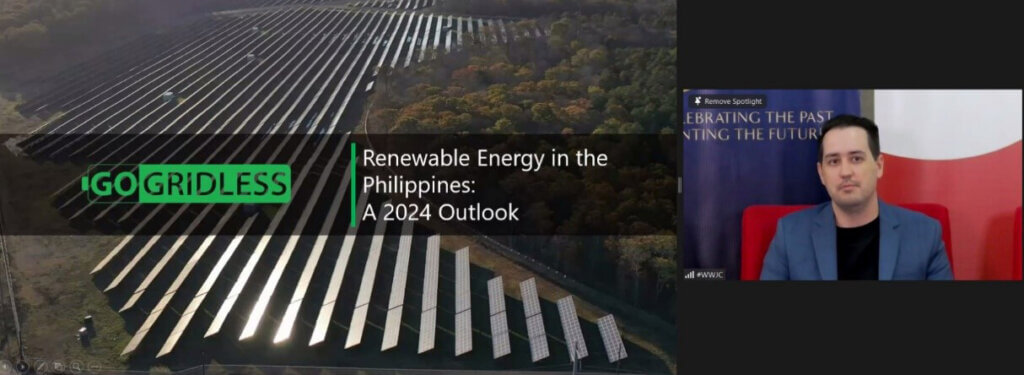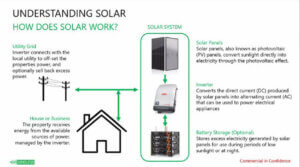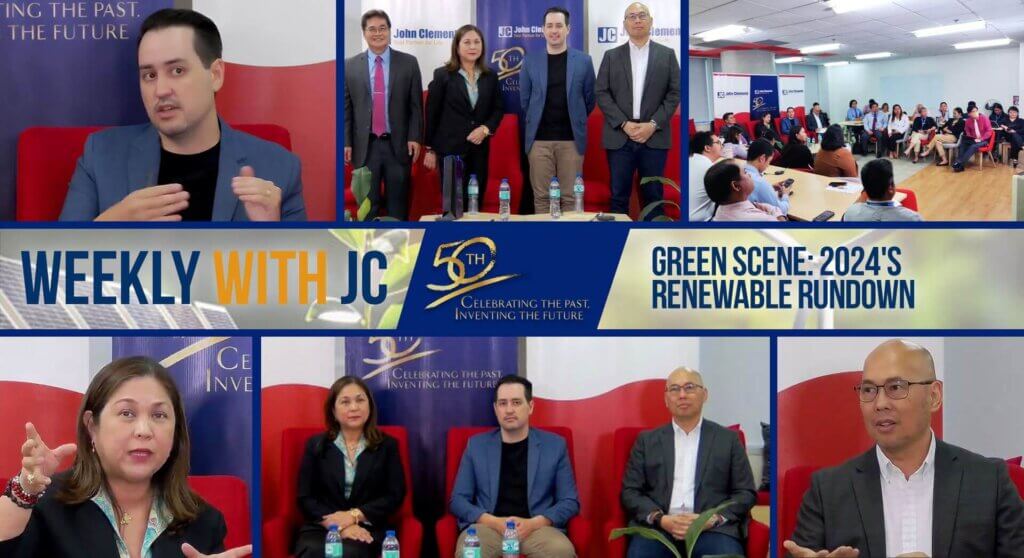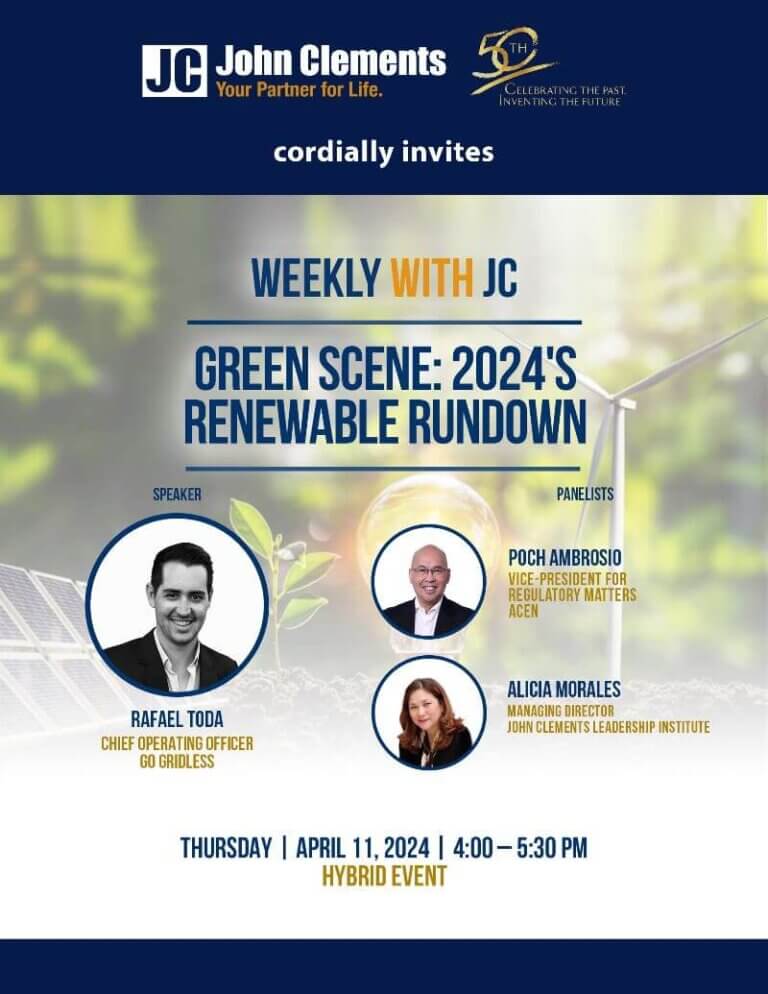In the dynamic landscape of renewable energy, insights from industry leaders provide valuable perspectives on the future of sustainable power. On April 11, 2024, John Clements Consultants hosted another episode of Weekly with JC, this time focusing on the renewable energy scene in the Philippines.

A Low-Carbon Future in the Philippines with Renewable Energy
“Green Scene: 2024’s Renewable Rundown” featured Rafael Toda, Chief Operating Officer of Go Gridless, alongside panelists Poch Ambrosio, Vice President for Regulatory Matters at Acen, and Alicia Morales, Managing Director of John Clements Leadership Institute. Today’s expertise sheds light on the latest developments in renewable energy, seamlessly complementing our exploration of renewable power systems and their significance in shaping our energy landscape.
Renewable power is booming as innovation brings down costs and starts to deliver on the promise of a clean energy future. American solar and wind generation are breaking records and being integrated into the national electricity grid without compromising reliability.
In the quest for a sustainable future, the shift toward renewable energy sources has become imperative. Renewable power systems offer a promising solution to the dual challenges of climate change and energy security, providing a clean and inexhaustible alternative to fossil fuels. This article explores the significance of renewable power systems in shaping our energy landscape and driving the transition toward a low-carbon future.
What are Renewable Sources of Energy in the Philippines?
Renewable power systems encompass a diverse array of technologies, including solar, wind, hydroelectric, geothermal, and biomass energy. Each of these sources harnesses natural processes or resources to generate electricity with minimal environmental impact. Solar energy, for instance, uses photovoltaic cells to convert sunlight into electricity, while wind turbines capture the kinetic energy of the wind to produce power.

By transitioning to renewable power systems, we can significantly reduce our reliance on fossil fuels and curb the harmful effects of global warming. Moreover, renewable energy technologies can create new job opportunities and stimulate economic growth in the renewable energy sector.
This inherent sustainability ensures long-term energy security and reduces our dependence on imported fuels, thereby enhancing energy independence and resilience. Furthermore, decentralized renewable power systems, such as rooftop solar panels or small-scale wind turbines, empower communities to generate clean energy and reduce their reliance on centralized power grids.
What’s the Status of Renewable Energy?
However, despite their numerous advantages, renewable power systems still face challenges that must be addressed to accelerate their adoption. These challenges include intermittency, energy storage, grid integration, and cost competitiveness. Intermittent renewable energy sources, such as solar and wind, rely on weather conditions and may not always produce power when demand is high. Energy storage technologies, such as batteries or pumped hydro storage, are essential for storing excess energy during periods of low demand and supplying it during peak demand.
Renewable power systems hold immense potential to reshape our energy future and mitigate the impacts of climate change. By harnessing the abundant and sustainable energy resources available to us, we can build a cleaner, more resilient, and equitable energy system for generations to come. However, realizing this vision will require concerted efforts from policymakers, businesses, and communities to overcome technological, economic, and regulatory barriers and accelerate the transition toward a renewable energy-powered world.

For trends and forecasts affecting your industry, visit our Weekly with JC page for updates.




